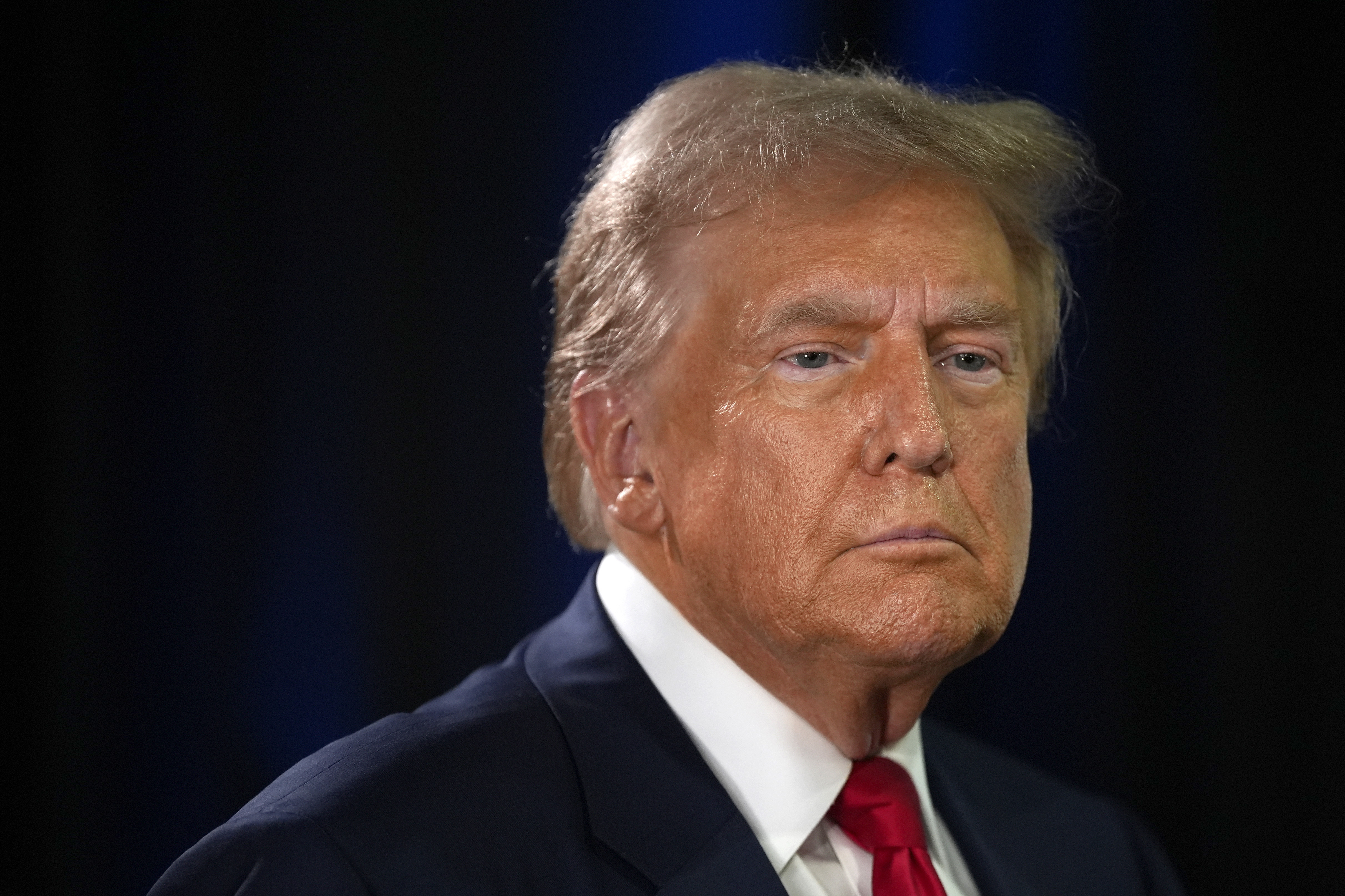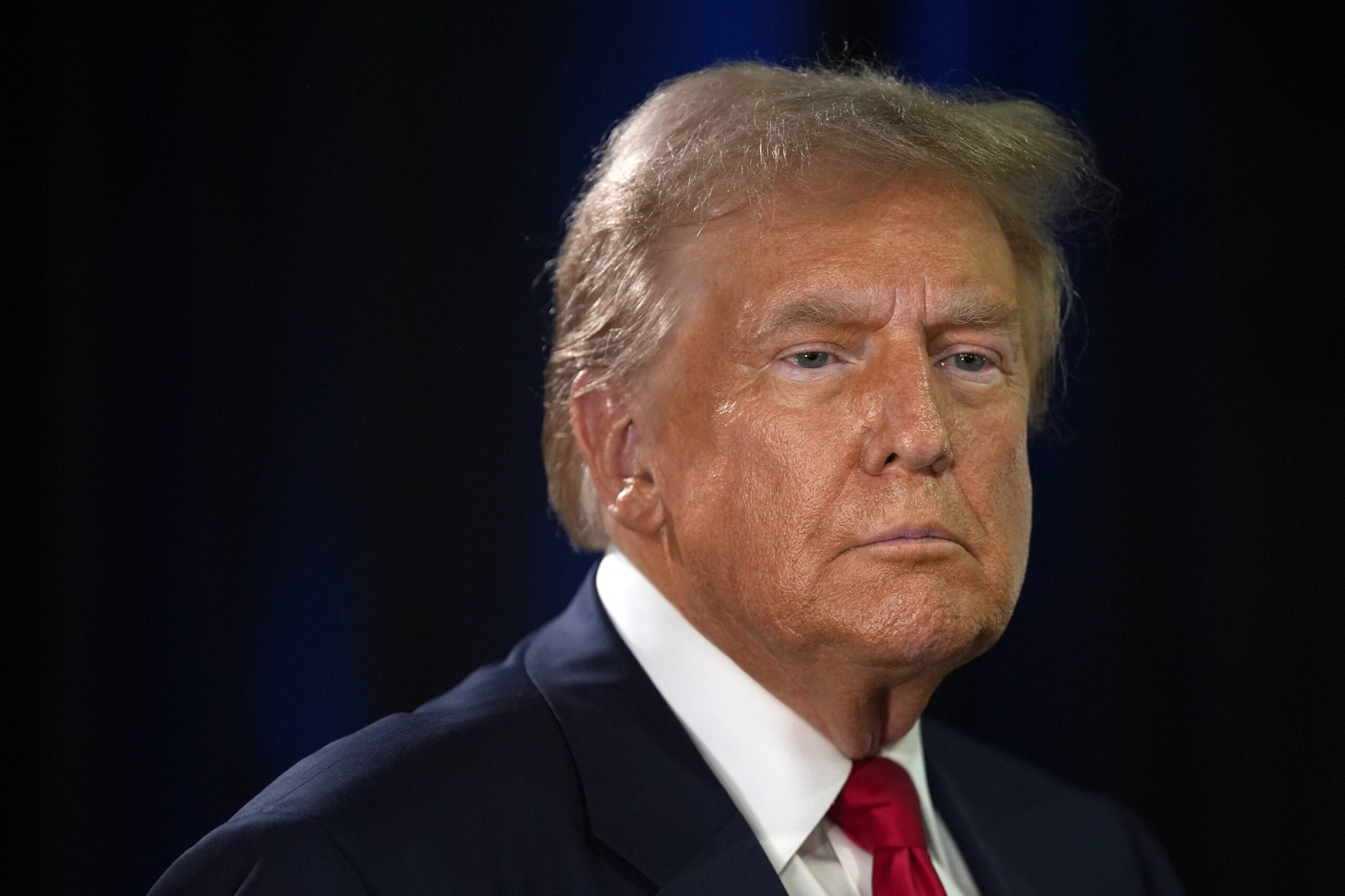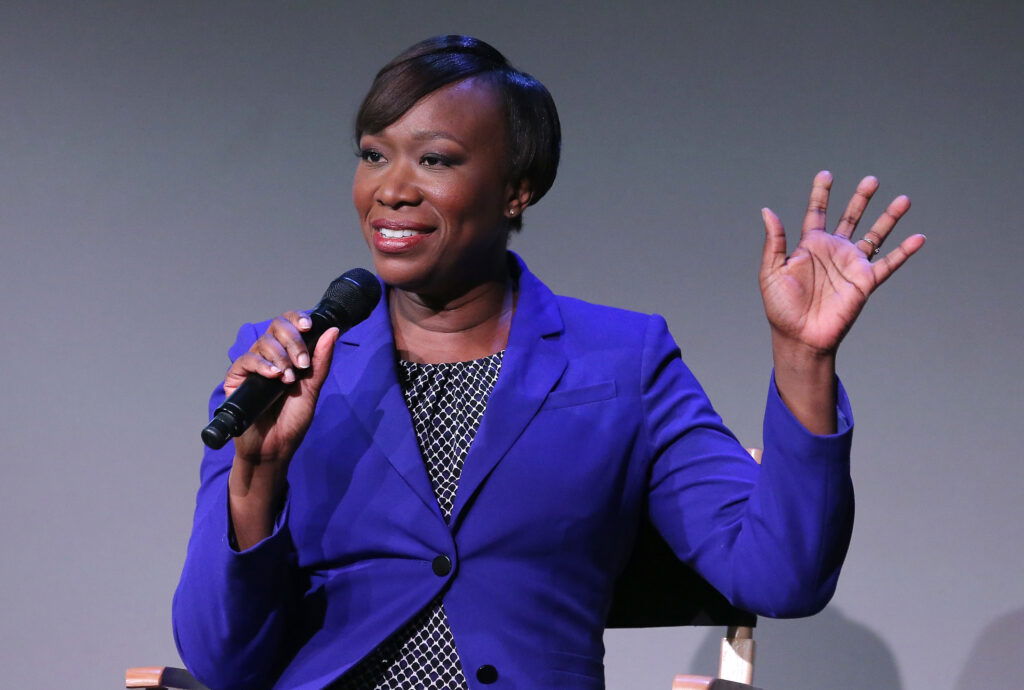
ATLANTA (AP) — The judge overseeing the Georgia election interference case against Donald Trump and others on Thursday tossed out three counts in the indictment — including two counts brought against the former president — saying that they lie beyond the state’s jurisdiction.
The case against Trump and others who are appealing an order allowing Fulton County District Attorney Fani Willis to continue prosecuting the case is on hold while that appeal is pending. But Fulton County Superior Court Judge Scott McAfee issued orders Thursday based on motions filed by two defendants, Shawn Still and John Eastman, who are not part of that appeal, meaning the case against them is not paused.
In the Georgia case — one of four criminal prosecutions against the Republican presidential nominee — a grand jury in August 2023 returned a 41-count indictment against Trump and 18 others, accusing them of participating in a wide-ranging conspiracy to illegally try to overturn Trump’s narrow loss in the 2020 presidential election in Georgia. Four people pleaded guilty last year after reaching deals with prosecutors.
Trump and other defendants tried to get Willis and her office removed from the case, arguing that a romantic relationship she had with Nathan Wade, the special prosecutor she hired to lead the case, created a conflict of interest. McAfee ruled that there was not a conflict of interest that warranted Willis’ disqualification, as long as Wade left the case. Trump and others have appealed, and the Georgia Court of Appeals is scheduled to hear arguments in December.
The judge in March had thrown out six counts of the indictment, a ruling that prosecutors are appealing. Even with a total of nine counts quashed, 32 counts remain, including an overarching racketeering charge brought against all of the defendants.
At issue in Thursday’s ruling are two counts having to do with the filing of a document with the federal court in Atlanta that declared that Trump had won the state of Georgia and 16 Republicans who signed the document were the “duly elected and qualified electors” from the state.
One of the counts charges three of those Republicans, including Still, with filing false documents. The other charges Trump and others, including Eastman, with conspiracy to file false documents.
McAfee wrote that punishing someone for filing certain documents with a federal court would “enable a state to constrict the scope of materials assessed by a federal court and impair the administration of justice in that tribunal to police its own proceedings.” He conclude that those two counts must be quashed “as beyond the jurisdiction of this State.”
The third count charges Trump and Eastman with filing false documents, saying they “knowingly and unlawfully” filed a a lawsuit with the federal court in Atlanta while “having reason to know” that the document included at least one “materially false” statement about the 2020 election in Georgia.
McAfee cited case law that says complaints filed in federal court fall within the scope federal perjury statutes and said the charge must be quashed.
A spokesman for Willis said prosecutors are reviewing the order and declined to comment.
Buddy Parker, a lawyer for Eastman, in an email applauded McAfee’s ruling. Steve Sadow, Trump’s lead attorney, also celebrated the dismissal of two charges against the former president, saying in an email that Trump and his Georgia legal team “have prevailed once again.”
Lawyers for Eastman, Still and other defendants had argued that the Republicans who acted as electors for Trump were within their rights and were acting as provided for by the federal Electoral Count Act. McAfee wrote that that statute is intended to govern the counting of electoral votes by Congress and that the state’s prosecution is not barred because it doesn’t impair that vote counting. While the Trump electors may have believed their actions were legal, that is a matter for trial and not a pretrial motion, the judge wrote.
In a separate order Thursday, McAfee rejected Eastman and Still’s attempt to dismiss the broad racketeering count in the indictment. That count is supported by 161 alleged acts that defendants are accused of engaging in to accomplish a common goal of challenging Trump’s electoral loss.
The U.S. Supreme Court ruled in July that former presidents have absolute immunity from prosecution for official acts that fall within their “exclusive sphere of constitutional authority” and are presumptively entitled to immunity for all official acts. McAfee noted that his rulings do not take that into account because those issues have not yet been fully briefed or argued by the parties in the case before him.





